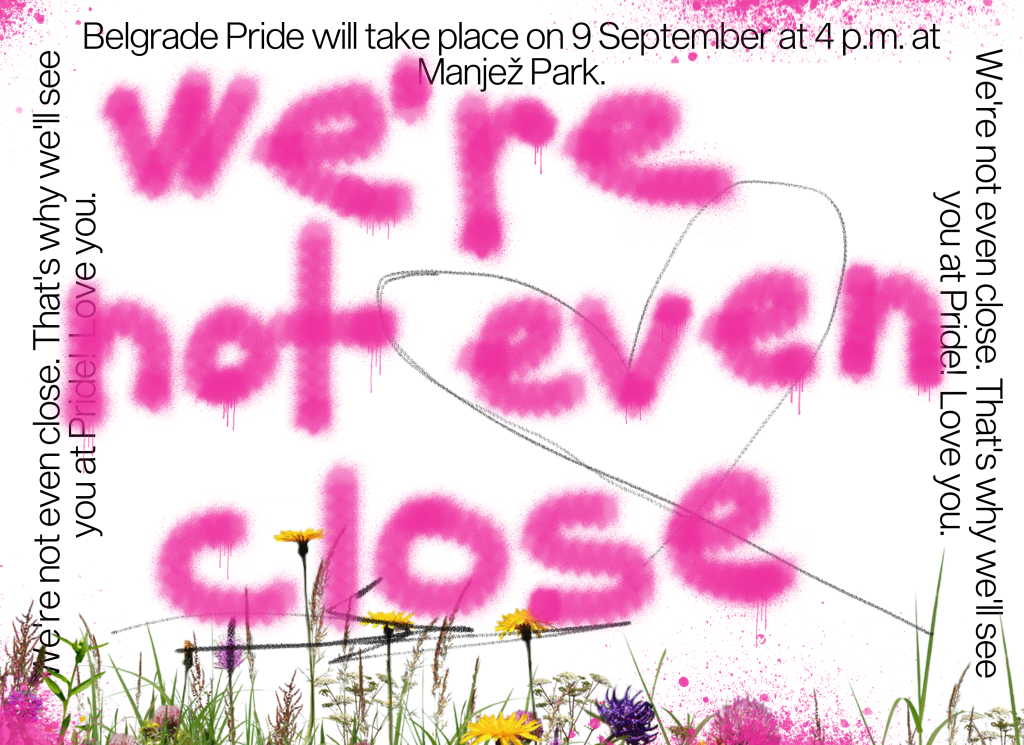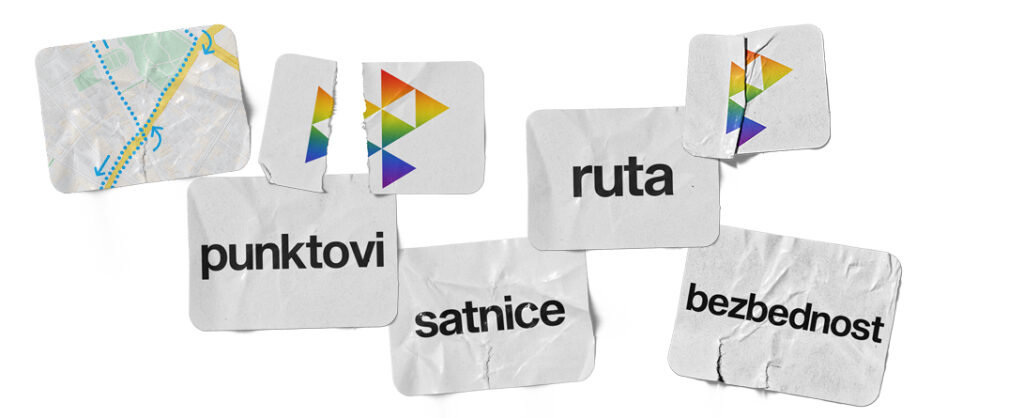
All important information regarding the Pride March in one place
This year’s Pride March is scheduled for Sunday 7th of September, the gathering will start at 16:00 for all participants of the March in Manjež park. The entrance points will be open from that moment. The March itself starts at 17:00, it will be led by a retinue of marching drummers and a truck playing music. The entrance points will be, asides from the members of the police force, also monitored by professional security guards, organizers and volunteers who will make sure everyone has safe access to the March and concerts while also being handed their wristbands.
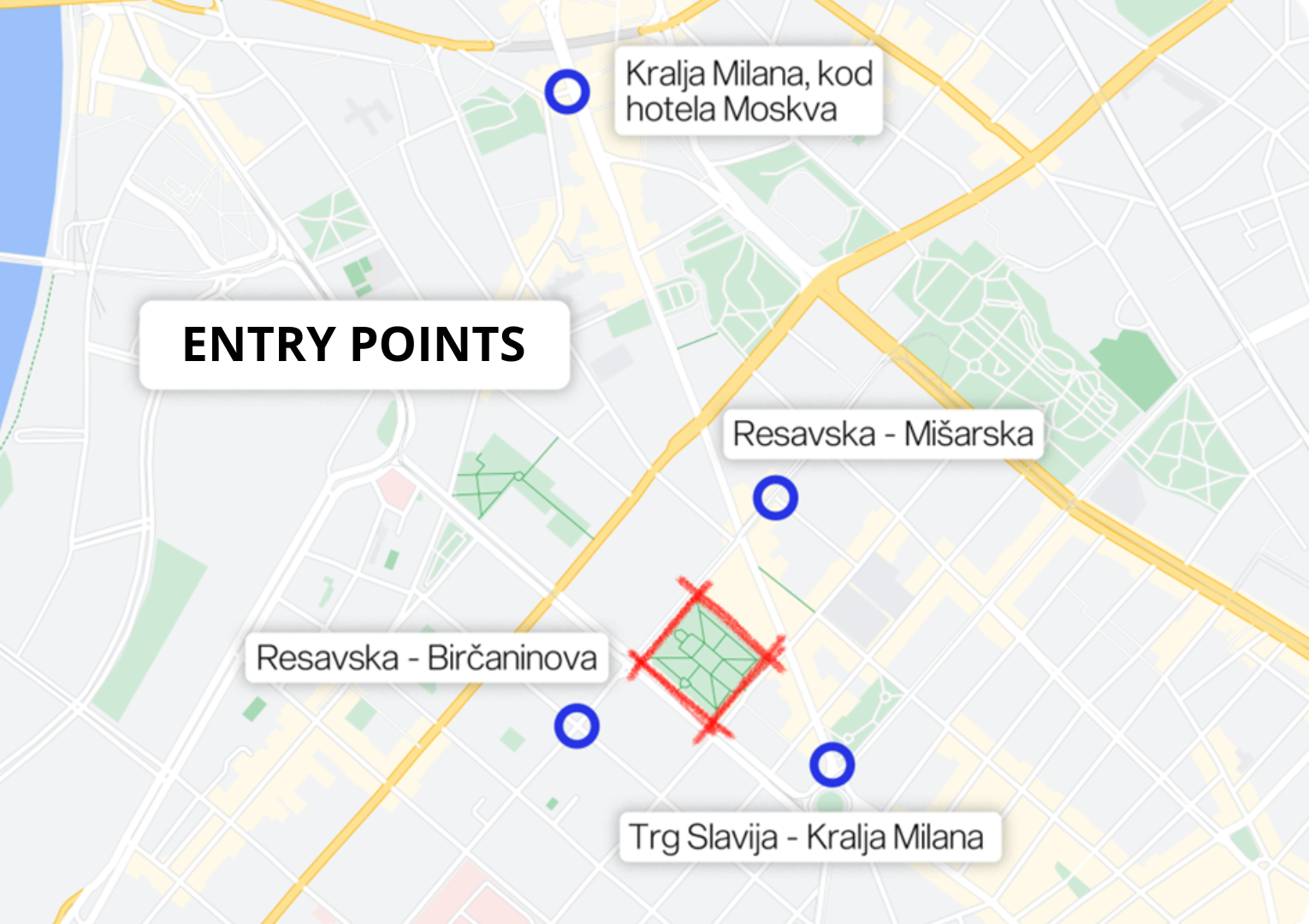
Access to the gathering may be had through 4 entry points:
1.Prizrenska street, at hotel ”Moskva”
2.The Resavska and Birčaninova street intersection
3.The Resavska and Mišarska street intersection
4.Kralja Milana, at ”Slavija” Square
IMPORTANT: Entrance points will be opening at 16:00 and closing at 17:00.
After the March and the round trip to the Park, at 18:00 two entry points will open up for the concert of which one will be located at the Resavksa and Masarikova street intersection, the other at the Nemanjina and Kralja Milutina intersection. These entry points will be open until 22:00. Please follow our social media pages in case of changes regarding these two entrances.
The route is as follows: Startin from Manjež park down Nemanjina street, Kneza Miloša street, Kralja Milan street, Nikola Pašića Square to the National Assembly, then again down Knez Miloša and Nemanjina street to Menjaž park. Entrance to Pride is open to all visitors, there is no pre-planned list of attendees.
If you find an issue with entering the March, please contact one of the following numbers:
+381 63 893 87 59
+381 69 699 831
+381 69 699 802
All slogans and banner that run counter to the values and poltics of Belgrade Pride won’t be allowed at the March, it also includes hateful messages on the basis of nationality, religious or ethnic grounds, discrimination, insults, homophobia, transphobia, misogyny or calls to violence.
Political or protest messages, that are in line with the values and principles of Belgrade Pride are however welcome.
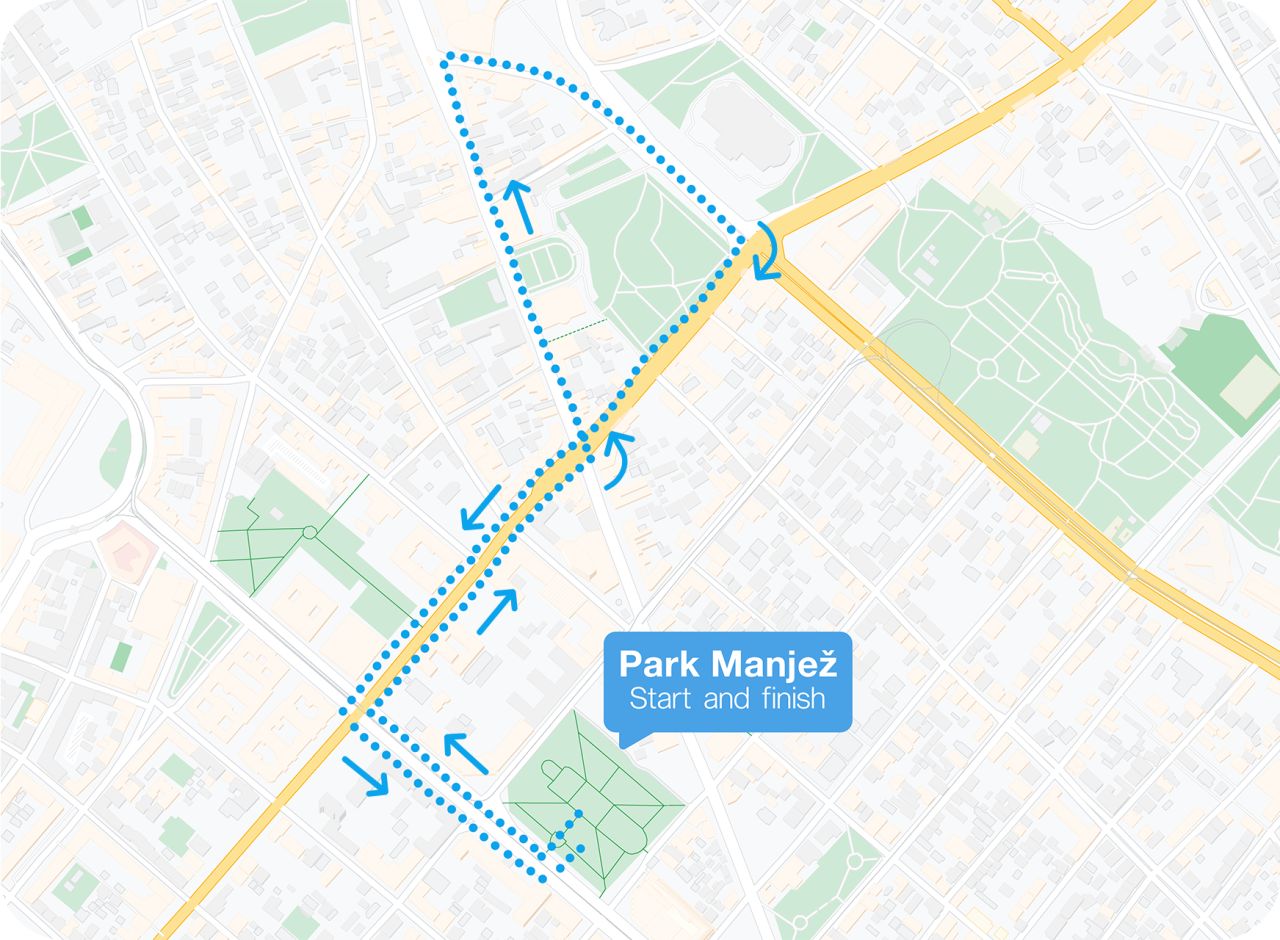
Safety recommendations:
- Avoid conflicts with members of the security staff, don’t answer to any provocations and avoid contactwith eventual counter-protestors
- At arrival to the Pride March or Pride concert, all markings that indicate that you were a part of the gathering(flags, tote bags) should be packed in your bag or backpack, or leave them in Pride park. All makeup, glitter, clothes, or other elements should be taken off or changed out of before exiting the park.
- When leaving, move in large groups, use central and well-lit streets to the first taxi or public transport.
-If you notice your safety was in danger, immediately call 192 or talk to the nearest police officer, if you notice them within your vicinity.
- The Planning committee has, while scheduling the Pride March, requested a temporary stop to traffic from the period from 16:00 to 19:00 on the course of the March, while the March is passing through those streets. But, the police, after security checks, may determine to close other streets and extend the time they’ll be closed off for, and we can’t influence that.





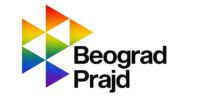
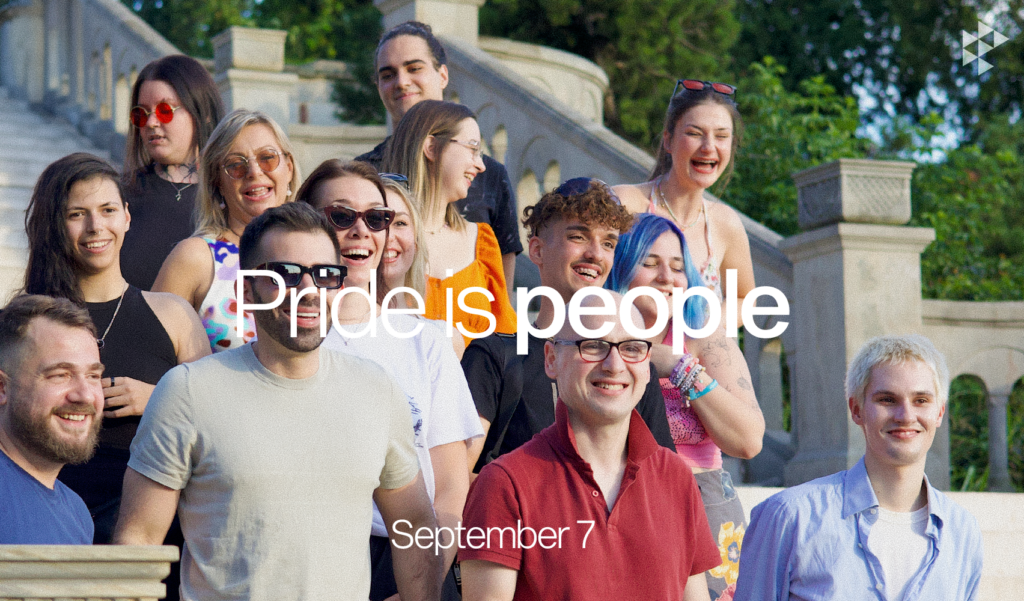
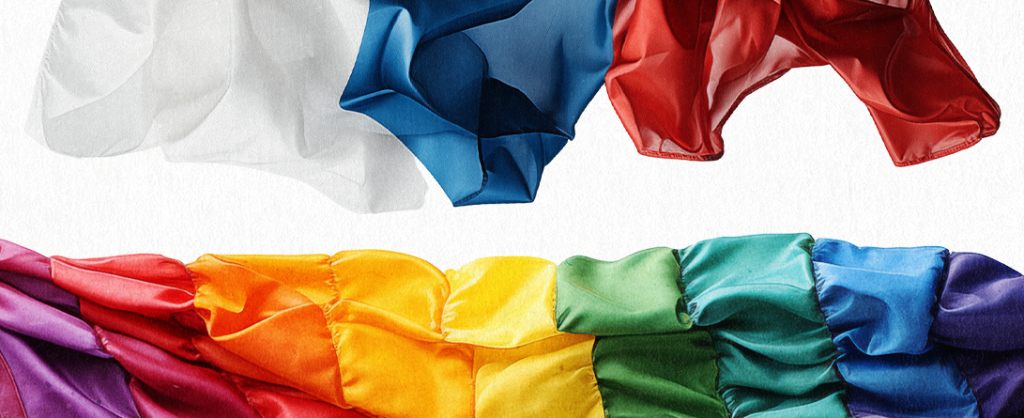

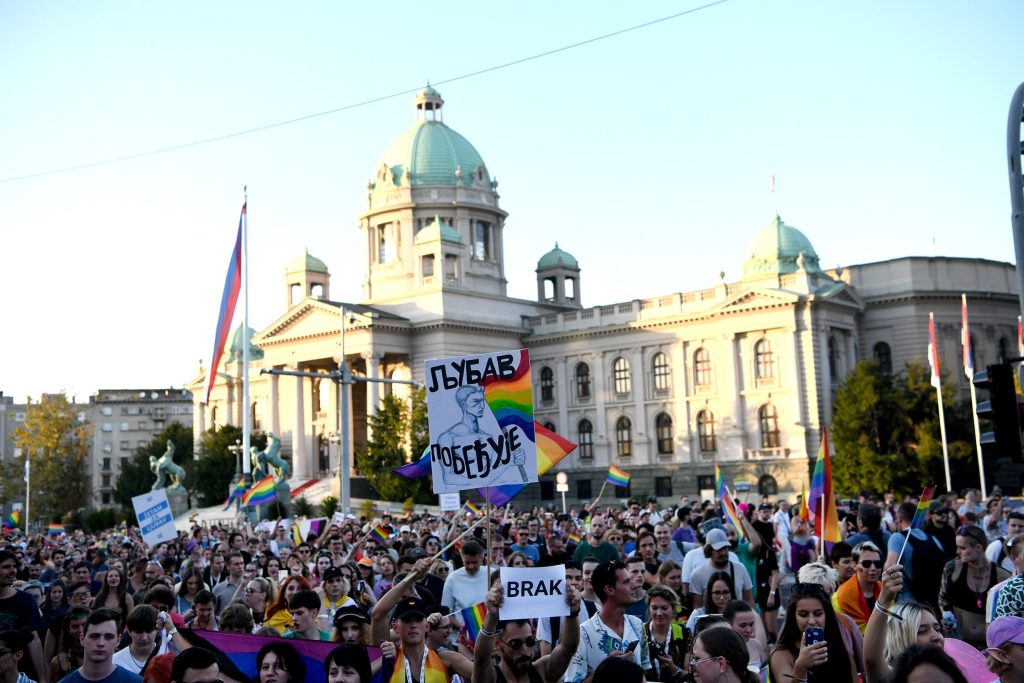

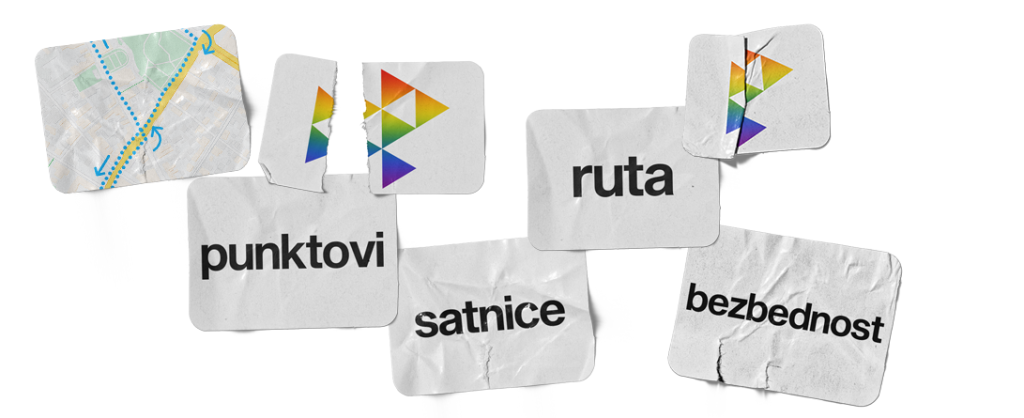
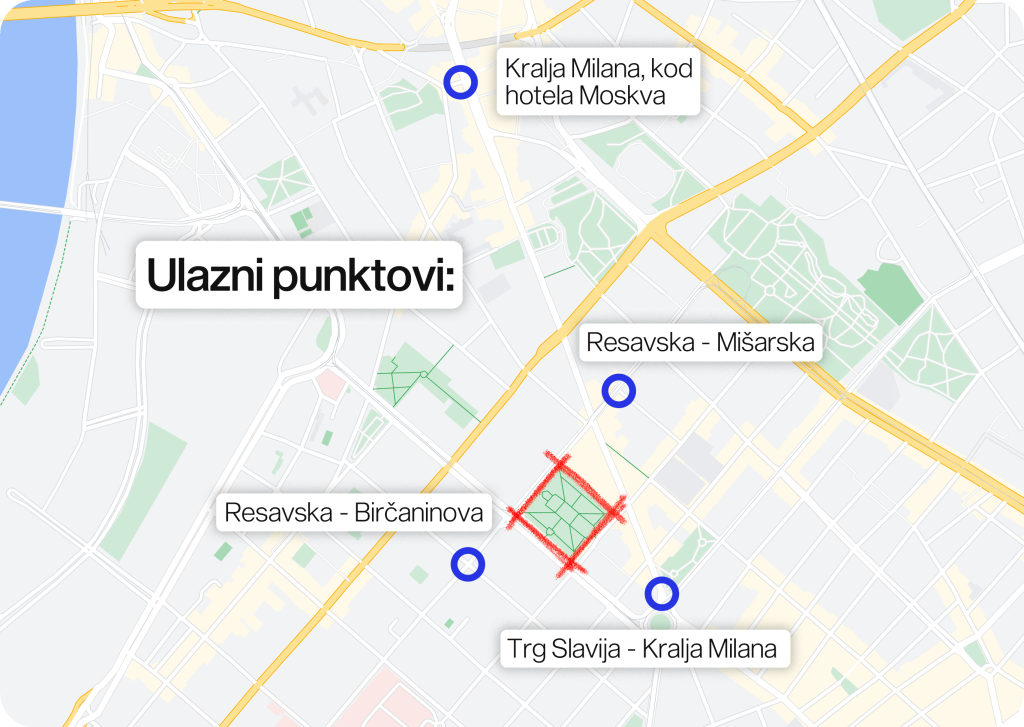 The walk route is as follows: it starts from Manjež Park, goes through Nemanjina street, Kneza Miloša street, Kralja Milana street, Nikola Pašić Square to the National Assembly, then back through Kneza Miloša street and Nemanjina to Manjež Park. The Pride is open to all citizens; there is no pre-registered list of participants. If you encounter any issues when entering the walk, please call one of the following numbers: +38169699802, +381638938759, + 381621775356.
The walk route is as follows: it starts from Manjež Park, goes through Nemanjina street, Kneza Miloša street, Kralja Milana street, Nikola Pašić Square to the National Assembly, then back through Kneza Miloša street and Nemanjina to Manjež Park. The Pride is open to all citizens; there is no pre-registered list of participants. If you encounter any issues when entering the walk, please call one of the following numbers: +38169699802, +381638938759, + 381621775356.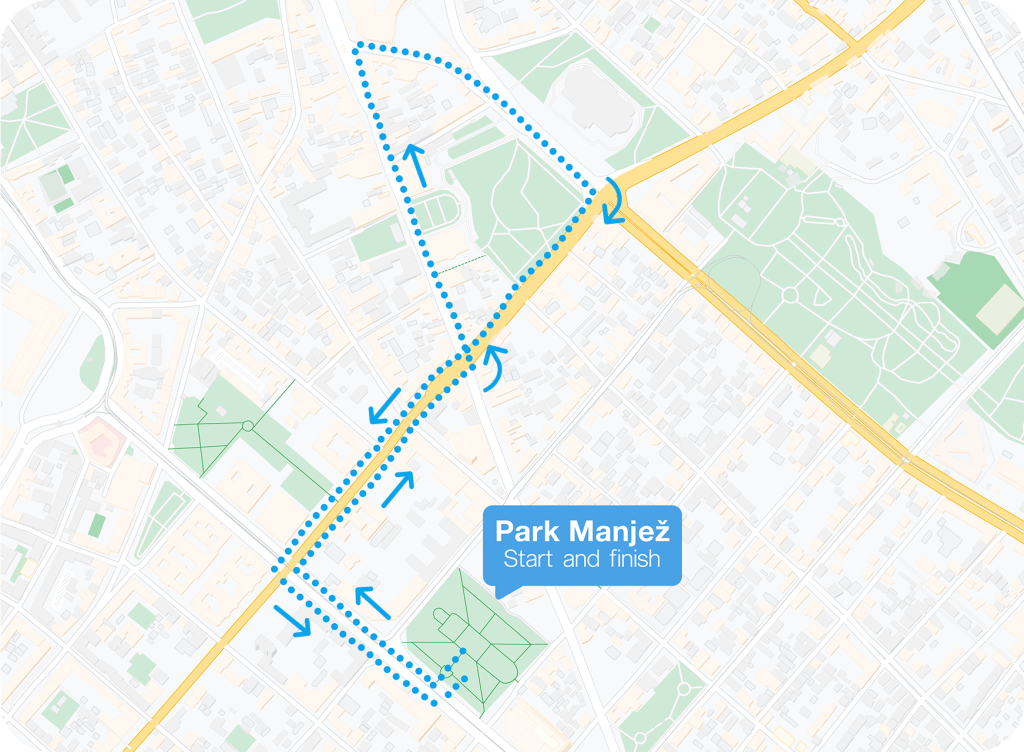 When leaving, move in larger groups, walk on central and well-lit streets to the nearest taxi or public transportation stop. If you feel your safety is threatened, call 192 immediately or approach the nearest police officer if you spot them nearby. The organizational team, when applying for the Pride March, requested a temporary traffic closure from 4:00 PM to 7:00 PM along the route of the March, not continuously, but while the March passes through those streets. However, the police, after safety assessments, may decide to close other streets and extend the closure time for those streets, which we cannot influence.
When leaving, move in larger groups, walk on central and well-lit streets to the nearest taxi or public transportation stop. If you feel your safety is threatened, call 192 immediately or approach the nearest police officer if you spot them nearby. The organizational team, when applying for the Pride March, requested a temporary traffic closure from 4:00 PM to 7:00 PM along the route of the March, not continuously, but while the March passes through those streets. However, the police, after safety assessments, may decide to close other streets and extend the closure time for those streets, which we cannot influence. 